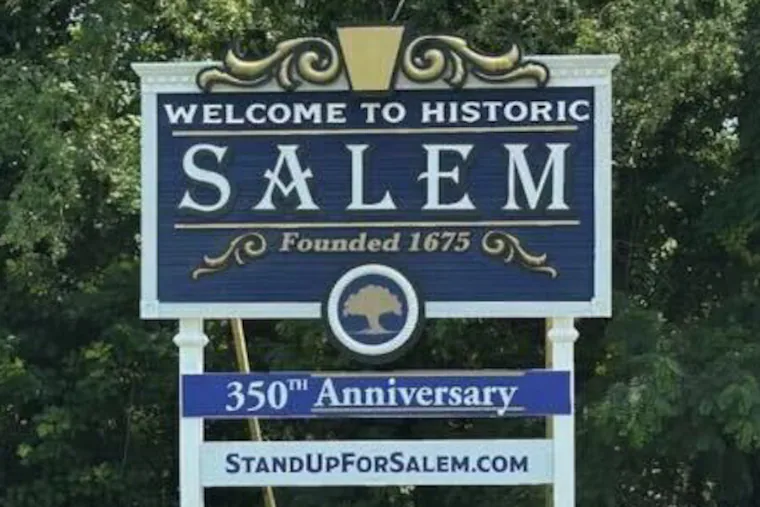Stand Up for Salem president apologizes for request to have Black students portray enslaved people

There was an apology, a handshake, and a pledge to try to bridge the racial divide in a Salem County community disturbed by a request to have Black children portray enslaved people.
Tom Smith, president of Stand up for Salem, attended the general membership meeting Monday for the Salem County NAACP to deliver a personal apology.
After initially suspending executive director Betsy McBride, Stand Up For Salem on Saturday terminated her effective immediately after a fact-finding.
Smith apologized to the civil groups for the angst that erupted in the South Jersey town last week after residents learned that the nonprofit’s leader had asked to have Black children participate in a reenactment marking the city’s 350th anniversary.
“Obviously we regret that this incident happened,” Smith said. “We’re aware that this is very hurtful to the community.”
NAACP President Nelson Carney Jr., accepted the apology. The anniversary celebration will be held Oct. 4 without child enactors.
“I think we resolved it. Now it’s time for the healing process,” Carney said. “We’ll continue to work together.”
Smith told the group that McBride admitted to asking the principal of Salem Middle School to let students participate.
The suggestion was made unbeknown to the group’s 14-member board, Smith said. McBride had been its executive director for about three years. Stand Up for Salem is a community development organization that supports resident-driven planning and volunteer projects.
McBride later apologized in an email to the principal, saying her intent was to portray living history in Salem.
“I wasn’t thinking how that would sound to you. And that’s the problem right? White privilege means I didn’t think. But, it was offensive and for that I apologize,” McBride wrote.
McBride confirmed in an email to The Inquirer that she had made the suggestion, declining further comment. Efforts to reach her since have been unsuccessful.
She has been active in Camden County politics and served as mayor of Pennsauken in 2017 and 2019 and on its township committee for eight years. Her husband, Edward, is a retired Superior Court judge.
At Monday’s packed meeting, Smith stood at a podium fielding questions from residents. There was robust applause at times.
Jesse Robinson, 70, a retired social worker, hailed efforts to address the controversy. He said he wants to ensure the city’s Black history is accurately reflected.
“A lot of people do not know the history of Salem,” Robinson said. “We do not want to cover up our past.”
Smith said his group still plans to have an actor portray Amy Hester “Hetty” Reckless during the anniversary. Reckless, a Black woman who was enslaved by one of the city’s wealthiest families, escaped to Philadelphia and helped others find freedom on the Underground Railroad.
Salem was established in 1675 by John Fenwick, a Quaker, and was once a thriving agriculture and manufacturing community. Some of its early settlers were enslavers.
Today, about 58% of Salem’s 5,200 residents are Black, 24% are white, 11% Hispanic, and the remaining are Native American, Asian or multiracial, according to census data.
Council member Sharen Cline, a retired Salem elementary teacher, said she gasped when she heard about the possibility of involving Black children in the reenactment.
“My heart went to a very dark place. I just couldn’t believe the ask,” said Cline. “I found it incredible that would be part of the question.”
Smith said his group plans to add more diversity to its board, recruit more Salem residents, and hold racial sensitivity training. He plans to serve as interim executive director until a replacement is named.
“We’re going to do our best to make sure something like this doesn’t happen again,” Smith said.



